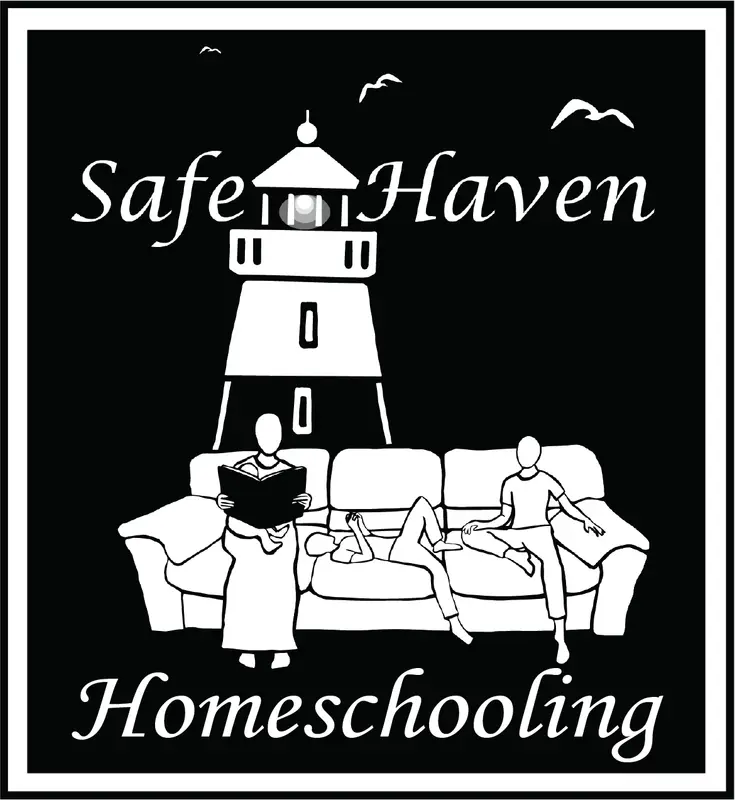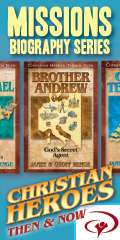

Homeschool Pioneers: Chris and Ellyn Davis
Chris and Ellyn Davis founded The Elijah Company which supplied materials and insightful articles for homeschooling families for over 15 years, starting in the 1980’s.
Unfortunately, Chris passed away in 2019, but some of the articles have been preserved in some books that his wife compiled.
In the book called “I Saw the Angel in the Marble (Unconventional Homeschooling Guides Book 2)” which is available on Amazon, they gave us a list of reasons to homeschool.
Obvious reasons are:
-
Being able to choose teaching materials that reinforce our religious beliefs and moral standards
-
The academic superiority of a one-on-one teaching situation
-
The ability to monitor socialization experiences
-
The freedom to tailor the course of study to the individual
-
The flexibility to create more family time
But they said that there are other reasons that are not mentioned as often. These are listed here:
-
We want to create a different kind of human being.
-
We object to the presuppositions and objectives of the public schools.
Which according to John Taylor Gatto are teaching these six lessons:
-
Stay in the class where you belong.
-
Nothing important is ever finished.
-
Surrender your will to a pre-appointed chain of command.
-
Good people wait for a teacher to tell them what to do.
-
Your self-respect should depend on someone else’s measure of your worth.
-
You must constantly be watched because no one can be trusted.
-
We believe institutionalized education is harmful to children.
*About socialization, researchers discovered that children who spend more time with adults become better socialized than children who spend most of their time with their peers. In addition, they tell us about the other areas of concern about institutionalized education, such as:
-
Self-esteem
-
Learning readiness
-
Gender differences
-
The Factory mentality
-
Safety
-
We want our children educated for the real world.
Here’s a quote from John Taylor Gatto:
“Schools school; life educates.”
-
We want each child to discover his or her true identity.
“If each person is uniquely gifted for a specific life work, then each must be given some very specific tools of the trade as well as a lot of time to spend becoming good at talents or callings.”
-
We want a relationship with our children.
“I want to know my children and I want them to know me.”
-
We are preparing our children for the future.
“God is giving us just enough faith so that, if we are willing to hear Him and do something that most others are unwilling to do this generation will emerge from our families with an uncomplicated faith in their God, an unmoveable disagreement with darkness, and an unmistaken sense that they were born for such a day as this.”
Ellyn Davis put together a series called “Unconventional Homeschooling Guides” which include “Why homeschool”: Developing Strong Enough Why”; “ I Saw the Angel in the Marble”; and “I Carved the Angel From the Marble”. The “Angel” books are compiled from articles from The Elijah Company and Home School Marketplace (which are no longer operating). You can find these books on Amazon.
They are chock full of homeschool wisdom. You will want to read them slowly and carefully and over and over again.
Chris wrote a book in 2014 called Gifted: Raising Children Intentionally. Unfortunately, it’s out of print and hard to find. But if you ever see it at a used book store or somewhere, you should grab it. It’s really good.
These pioneers of homeschooling have a lot to teach us.
They describe 3 types of homeschoolers as homeschooling has transitioned through several phases: Pioneers, Settlers, and Refugees.
I’m in the Settlers group, and I read the books and learned from the Pioneers. But the Refugees have a different reason for homeschooling than the first two groups.
The following is taken from Chapter 5 of “I Saw the Angel in the Marble”.
“The Pioneers homeschooled because they had a vision that others had not yet begun to see.
“Many homeschooling Pioneers only vaguely understood why they felt compelled to homeschool their children. They often had trouble communicating the reasons they were driven to do “such a radical thing.” As a consequence, they often had to withstand censure from those they loved; and constant threats of harassment or arrest from authorities. Yet they moved forward through these difficulties because they could not help themselves. They had a conviction that what they were doing was the right thing to do.”
“In the early days of homeschooling, none of the Christian publishers would sell products to a homeschooling family. These families had to figure out how to do everything themselves as well as create their own materials. They had to “make it up as they went.” The phrase back then was, “Are you doing this because you have a Conviction, or because this is only a Preference?” What this question meant was that the courts would usually leave a homeschooling family alone if that family could prove they had a conviction to homeschool that kept them from sending their children to another kind of school.
“If, on the other hand, they only preferred homeschooling to other forms of education, the courts tended to feel that preference was not enough reason to allow parents this choice. In some instances, their children were forcibly removed from their homes. The Pioneers were being watched by many families who tended to agree with homeschooling, but did not want to face the consequences of such a radical decision. Eventually, however, a large group of what we now call the Settlers came to believe in what the Pioneers were doing. By the time the Settlers became involved, homeschooling had become legal and many of the mistakes made by the Pioneers had been corrected.
“The Settlers liked the lifestyle they saw being exhibited in Pioneer families. They liked the materials created by the Pioneers. They, too, began to have the conviction that this new/old way was the best, and perhaps, the only way to raise their children.
“A few years ago, as homeschooling became an accepted alternative to both public and private schooling, parents dissatisfied with government schools and unable to afford private education began to withdraw their children from “school.” An increasing stream of Refugees began to flood into homeschooling. Refugees want their children to receive a “traditional” (like the public school) education; but, for various reasons, they just don’t want their children in a traditional school. These homeschoolers tend to have great difficulty homeschooling and that difficulty creates failure which, in turn, drives them to return their children to the institutional school.
“What is the problem with a Refugee mindset? First of all, Refugees do not have a (positive) vision for homeschooling.
“Rather, they are focused on escaping something negative (school). Refugees do not have the conviction that drives the Pioneer and, usually, the Settler. Refugees do not want to learn what the Pioneers have to tell them. This is because they are homeschooling for different reasons than the Pioneers. Refugees are homeschooling out of a reaction to the conditions in the public schools, so they only want to know answers to such questions as: “Where can I purchase materials that work, are the cheapest, and require the least of me as the ‘teacher’?” “Does the material look like public school material; will it accomplish the same ends as public school material; and will it keep my child on track with his public schooled counterparts?”
“Unless Refugees become at least like Settlers, they can’t realize that homeschooling is not just another way to educate one’s children. It is a totally different way of living and relating as a family unit. It is a different way of looking at children and their futures and how we “get them there.”
“In reality, homeschooling is just a part of the total picture of family life. This is why the kind of educational and social experiences found in what Pioneer homeschoolers call “the institutional school” cannot be easily replicated at home. We can’t really (and mustn’t) “bring the children home and their school along with them.” Institutional schooling works best in an institution. It doesn’t work very well in the home. If you are a Refugee and have read this article to the end (and this is the end), we recommend that you not stop here. Never allow yourself to stop learning how to do this thing we call “homeschooling.” Attend seminars and get seminars on CD. Remember: All it takes to become a Pioneer is to do what God tells you to do. And, all it takes for a Pioneer to stop being a Pioneer is to fail to move on with God. Happy Homeschooling for the next generation.”
Some of the links in the book don’t work because the websites are no longer active.
If you would like to learn more about Chris Davis, here are some places to hear him speak and to read about what he believed.
https://www.youtube.com/watch?v=cMsOyFhy7so interview with The Luminous Mind called Episode 171 – Chris Davis, Helping to Give Generations of Parents Courage
https://lifeschoolingconference.com/chris-davis-tribute/ A tribute from a homeschool mom who knew him and followed the principles he taught. This includes a podcast she did with Chris.








 "Oh that God would give every mother a vision of the glory and splendor of the work that is given to her when a babe is placed in her bosom to be nursed and trained! Could she have but one glimpse in to the future of that life as it reaches on into eternity; could she look into its soul to see its possibilities; could she be made to understand her own personal responsibility for the training of this child, for the development of its life, and for its destiny,--she would see that in all God's world there is no other work so noble and so worthy of her best powers, and she would commit to no other's hands the sacred and holy trust given to her." -JR Miller
"Oh that God would give every mother a vision of the glory and splendor of the work that is given to her when a babe is placed in her bosom to be nursed and trained! Could she have but one glimpse in to the future of that life as it reaches on into eternity; could she look into its soul to see its possibilities; could she be made to understand her own personal responsibility for the training of this child, for the development of its life, and for its destiny,--she would see that in all God's world there is no other work so noble and so worthy of her best powers, and she would commit to no other's hands the sacred and holy trust given to her." -JR Miller






